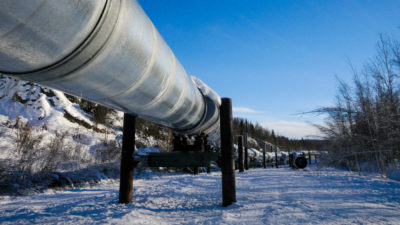It has been a tough year for investors in one-time darling of the oil patch Penn West Petroleum Ltd. (TSX:PWT)(NYSE:PWE). Shares have plunged by a massive 60% to now be worth less than a 20th of what they were worth at their peak over nine years ago. Some analysts claim that Penn West is one of the best-levered plays on a rebound in crude and that it is a takeover target, but there are signs that worse is yet to come.
Now what?
Penn West committed a number of cardinal sins as it sought to rapidly expand and take advantage of higher oil prices that topped over US$100 per barrel after the global financial crisis. The worst sin was loading up on debt to purchase assets of questionable quality.
The big question for many investors is whether or not Penn West is now a takeover target; rumours have been swirling around that it is.
Clearly, it has some very attractive light oil and natural gas assets, and with its share price off by 60% over the last year, it certainly appears attractive. This is more so when you consider that after allowing for income taxes and debt, it is trading at a whopping 75% discount to the value of its oil assets.
However, despite signs of a marked uptick in mergers and acquisitions activity, it is unlikely that Penn West is attracting takeover attention at this time.
Potential suitors would be better off waiting for the company to go into bankruptcy, when its assets would be sold off at fire-sale prices. It would also mean they would not have to assume Penn West’s mountain of debt, which, along with decommissioning and tax liabilities, totals in excess of $3 billion.
What is the likelihood of Penn West falling into bankruptcy?
Over the last year Penn West has made significant inroads to reduce its debt. It completed $1.1 billion in asset sales, with the majority of those proceeds directed to debt repayment. It was also able to renegotiate the terms of its debt covenants, but only until December 2016, effectively only kicking the debt-can further down the road.
With oil prices now expected to remain weak for a sustained period, the likelihood of Penn West breaching those covenants when they are reinstated to their original levels remains high. This is unlikely to lead to bankruptcy, but it may trigger an accelerated asset-divestment and debt-repayment program, playing into the hands of cashed-up energy companies seeking to acquire assets at fire-sale prices.
Then you need to consider that Penn West has reported a net loss for the last four quarters and is cash flow negative, leaving it under considerable financial pressure. In conjunction with its high debt load, Penn West’s declining production makes it unattractive to potential suitors, as does its relatively low netback, a core measure of profitability.
So what?
The overall outlook for Penn West remains poor, particularly with sub-US$50 oil looking like the “new normal.” This puts it under considerable financial pressure and its mountain of debt as well as waning oil output explains the lack of suitors.
The lack of interest can also be explained by the growing likelihood of Penn West being forced to accelerate the sale of assets. This will allow potential suitors to acquire those assets at fire-sale prices without having to assume Penn West’s problems.







